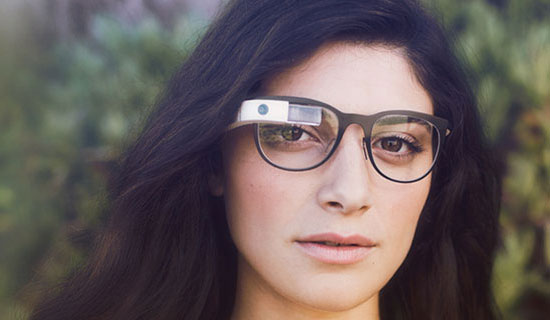Google hasn’t killed Glass, its controversial Internet-connected eyewear, CEO Eric Schmidt told The Wall Street Journal in an interview published Monday.
In fact, Google plans to bring out a new version of Glass later this year, he said.
Rumors of its demise seemed to be confirmed in January, when Google abruptly stopped selling the initial version of Glass, shuttered its Explorer program, and moved the project out of the Google X research lab.
Under the reorganization, Tony Fadell, head of Google’s Nest connected home division, began overseeing the strategy of the Glass program, although Ivy Ross remained in charge of daily operations.
That shift in the overall leadership, as well as the end of the original Explorer program, led to speculation that Google was shutting down Glass, but Schmidt told the WSJ that thecompany was simply refocusing its efforts.
Looking Back at Glass
Google first unveiled its smartglasses in 2012, and a year later offered them to so-called Explorers — early adopters who expressed an interest in helping to develop the platform and were willing to payUS$1,500 for a pair. In May of last year, Google briefly began to sell Glass to the public.
During its exploratory phase, Glass triggered a lot of controversy, ranging from a backlash over privacy concerns and socially accepted use to an outright ban issued by the Motion Picture Associationof America over fear the technology could be easily used to pirate movies.
Although the challenges of addressing those problems may not have dealt Glass a deathblow, they won’t easily be met.
“The issues of privacy and security are going to be ongoing issues that we struggle with as an industry and society, but like it or not, cameras are all around us,” said Jim McGregor, principal analyst atTirias Research.
“Products [like Glass] can survive the privacy backlash, especially if they are at price points that a larger segment of the population can afford,” he told TechNewsWorld.
Market Ready?
While Google was among the first to introduce a wearable computer with an interface in a pair of glasses, other developers have followed suit. Sony recently unveiled its own take on smartglasses, suggesting that demand for this technology could be growing.
“There is certainly a market for it, but the bigger issue is whether society is ready for this technology,” said Roger Kay, principal analyst at Endpoint Technologies Associates.
“It is akin the drone issue,” he told TechNewsWorld. “The bad part is hyped, but there arelegitimate uses for the technology.”
Google is intrusive, but smartphones are already intrusive.
“At least with the phone, you have to pull it out and people know you are filming,” noted Kay, “but with Google Glass, you might not know you are being filmed — and that is giving people cause for concern.”
Take 2 for Glass
Google’s original strategy for bringing out the device, which was arguably was barely in the beta stage, may not have helped matters.
“Google introduced a public test program, but the effort was very un-Apple like, where the product is polished and refined,” observed Kay.
“Now they have rethought this a bit, and see they need to refine it and put it out as a real product that works,” he suggested.
“We just need to see if Google is going to take this beyond it being a novelty product,” said Susan Schreiner, principal analyst at C4 Trends.
“It remains to be seen what Google will do with version 2.0 and if that can attract an audience,” she told TechNewsWorld.
For that to happen, “Google really needs to make a fully realized product this time,” said Endpoint’s Kay. “If they blow it a second time, people will say they’re done with that.”
Market Opportunity
Google will continue to face competition from Sony and others, but its’ unclear whether the market for Glass and its ilk is going to be substantial enough to make it worth any of their efforts.
“That is the real question for all the new products, ranging from glasses to smartwatches — not ‘is there a market for them?’ but rather ‘how large is the market?'” noted Tirias’ McGregor.
“There is definitely a market for such products. The glasses can be used for a wide range of industrial and service applications ranging from design to maintenance to emergency services,” he pointed out.
“Some consumers will want them for a variety of uses,” McGregor suggested. “However, none of these are likely to reach the volume of handsets. In fact, they will be lucky to add up to the volume ofhandsets.”






















































